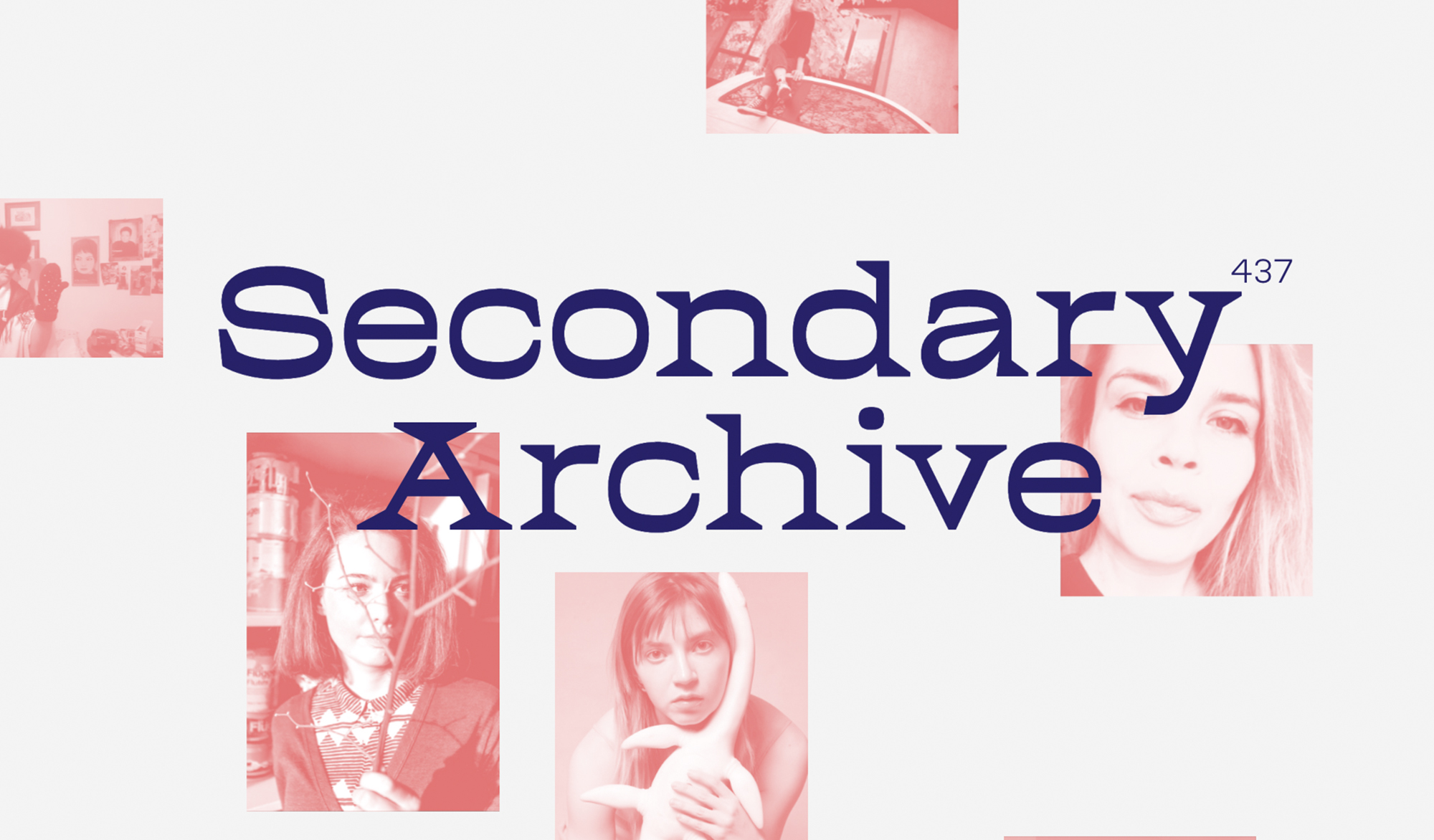Secondary Archive tells the history of non-Western — primarily Central and Eastern European — art through the lens of gender, covering the period after WWII through the present. This archive is composed of artistic statements and unknown pages of the biographies and practices of female artists, where one can see the names of those who have been marginalized, neglected, forgotten, or remain little known to the general public alongside artifacts from key female figures of non-Western art.
The period covered by the archive embraces the artistic endeavors of three generations of women artists spanning from the 1960s onwards: from the first so-called neo-avant-garde generation that operated within the toughest period of communist regime, with a mediatic turn through a conceptual approach; to the second generation, which emerged in the eighties and nineties, having witnessed the opening effects of the Fall of Communism in their early career; and the third generation who, having come of age at the time of political changes that have reshaped the face of present-day Europe.
In 2021–2022 Ambasada Kultury as a main Belarusian partner of the project in collaboration with curators Anna Krpenko and Sofiya Sadovskaya created Belarusian part of Archive, which included statements of 22 female artists. Later in 2022, the Secondary Archive project was presented in frames of Manifesta 14, in Pristina, Kosovo. The installation intends to show a virtual archive in a real space through the medium of sound. Sound-based piece composed of the voices of female artists from 9 countries of Central and Eastern Europe: Albania,Belarus, Czech Republic, Hungary, Kosovs, Poland,Serbia, Slovakia and Ukraine.
The content of the recordings took various forms: from manifestos, through sound poetry, confessions and even arguments to simple words whispered or repeatedly shouted out.
The partners of the project decided to cancel out the role of a curator as well as selection of artists, wanting to avoid giving a preference to specific country or issue. To reflect the diversity and complexity of a region that is often perceived as culturally homogeneous, artists’ voices are recorded in the language of their choice.
The initiative is supported by the Visegrad Fund.
Secondary Archive распавядае пра гісторыю незаходнееўрапейскага — перш за ўсё Цэнтральна- і Усходнееўрапейскага мастацтва праз прызму гендару, ахопліваючы перыяд пасля Другой сусветнай вайны да сучаснасці. Гэты архіў складаецца з мастацкіх выказванняў і невядомых старонак біяграфій і практык мастачак, дзе можна ўбачыць імёны тых, хто быў маргіналізаваны, занядбаны, забыты ці застаецца малавядомым шырокай публіцы разам з артэфактамі ключавых жанчын незаходняга мастацтва.
Перыяд, які ахоплівае архіў, ахоплівае творчыя намаганні трох пакаленняў мастачак, пачынаючы з 1960-х гадоў: ад першага так званага неаавангарднага пакалення, якое дзейнічала ў самы жорсткі перыяд камуністычнага рэжыму, з медыйным паваротам праз канцэптуальны падыход; да другога пакалення, якое з'явілася ў васьмідзесятыя і дзевяностыя гады, стаўшы сведкамі першых наступстваў падзення камунізму на пачатку сваёй кар'еры; і трэцяе пакаленне, якое дасягнула паўналецця ў часе палітычных змен, якія змянілі аблічча сучаснай Еўропы.
У 2021–2022 гадах Ambasada Kultury як галоўны беларускі партнёр праекта ў супрацоўніцтве з куратарамі Ганнай Карпенка і Сафіяй Садоўскай стварылі беларускую частку Архіва, у якую ўвайшлі выказванні 22 мастачак. Пазней у 2022 годзе праект Secondary Archive быў прадстаўлены ў рамках Manifesta 14 у Прышціне, Косава. Інсталяцыя мае на мэце паказаць віртуальны архіў у рэальнай прасторы з дапамогай гуку. Гукавы твор, які складаецца з галасоў артыстак з 9 краін Цэнтральнай і Усходняй Еўропы: Албаніі, Беларусі, Чэхіі, Венгрыі, Косава, Польшчы, Сербіі, Славакіі і Украіны.
Змест запісаў прымаў розныя формы: ад маніфестаў, праз гукавую паэзію, прызнанні і нават спрэчкі да простых слоў, якія шэптам ці шматкроць выкрыквалі.
Партнёры праекта вырашылі адмовіцца ад ролі куратара і адбору мастакоў, жадаючы не аддаваць перавагу канкрэтнай краіне ці праблеме. Каб адлюстраваць разнастайнасць і складанасць рэгіёна, які часта ўспрымаецца як культурна аднародны, галасы артыстаў запісваюцца на мове па іх выбару.
Ініцыятыва падтрымліваецца Вышаградскім фондам.
Team | Каманда
Curatorial group | Куратарская група:
Anna Karpenko | Ганна Карпенка
Sophia Sadovskaya | Соф'я Садоўская
Management group | Мэнэджарская група:
Anna Chistoserdova | Ганна Чыстасердава
Valentina Kiselyova | Валянціна Кісялёва
Anna Karpenko | Ганна Карпенка
Sophia Sadovskaya | Соф'я Садоўская
Management group | Мэнэджарская група:
Anna Chistoserdova | Ганна Чыстасердава
Valentina Kiselyova | Валянціна Кісялёва

